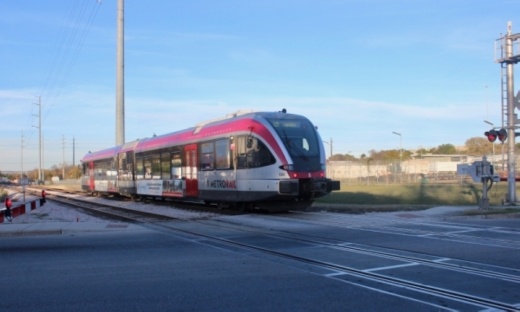A $458,000 loan to east side nonprofit developer Austin Revitalization Authority supported the purchase of a fourplex that will provide affordable two-bedroom rental spaces for at least 40 years. The building at 8402 Garcreek Circle, Austin, is located around 1 mile from the proposed Loyola stop on Project Connect’s Green Line.
The loan, approved during council’s Austin Housing Finance Corporation meeting March 24, represents the city’s first use of Project Connect anti-displacement dollars on housing. Voters’ approval of the $7.1 billion public transit plan in 2020 included a $300 million block of money aimed at keeping the new transit system from displacing or pricing out those living near future rail lines.
The Lakeside- and Colony Park-area property in East Austin is located in a majority Black and Hispanic neighborhood identified by the city as “vulnerable” to displacement risks. Gregory Smith, president and CEO of the Austin Revitalization Authority, said his nonprofit has focused on preserving and stabilizing housing around Colony Park in recent years given the city's plans to redevelop 208 acres of land there as well as the impending arrival of the Green Line.
"It was developed back in the '70s and is predominantly a lower-income neighborhood. And we feel that once they develop those 200 acres that it’s going to create some displacements from those neighborhoods where investors are going to go in and buy it up and create more market-rate [housing]," Smith said.
Displacement prevention
Council had voted March 3 to use $65 million of Austin’s anti-displacement funds on several initiatives this fiscal year, including actions such as the new housing loan. Officials have stressed their desire to get the dollars allocated quickly amid Project Connect’s longer-term development to ensure the initiative’s goals are met given rising local construction and housing costs.
Smith also said the program can help smaller developers or nonprofits get their hands on land or housing before they are priced out by larger groups.
“How can we, the nonprofits, compete with the private sector market? We need to have access to acquisition dollars," Smith said. "If you’re able to acquire the land at a decent rate, you need to get it and hold onto it so that you can develop affordable housing, because you might get it for $200,000 this week, next month it’s worth $300,000. ... The market is moving, and so we need to grab those before it gets too expensive that we can’t preserve those units."
Council will likely sign off on several more anti-displacement items this year from the $65 million reserved earlier this month. That funding is broken into $23 million for land purchases—including $8 million for loans to housing nonprofits—as well as $21 million for affordable housing construction, rehabilitation or purchases, and $20 million for community development projects.
“These funds are critical to ensure that we expand anti-displacement strategies and support our low-income and working communities, and communities of color that may feel the pressures of transit-induced displacement," said Awais Azhar, a member of Project Connect Community Advisory Committee, during the March 3 council meeting. "We should be proud in the community of our commitment to ensure that we improve our transit infrastructure while continuing to protect and serve the most vulnerable Austinites."





